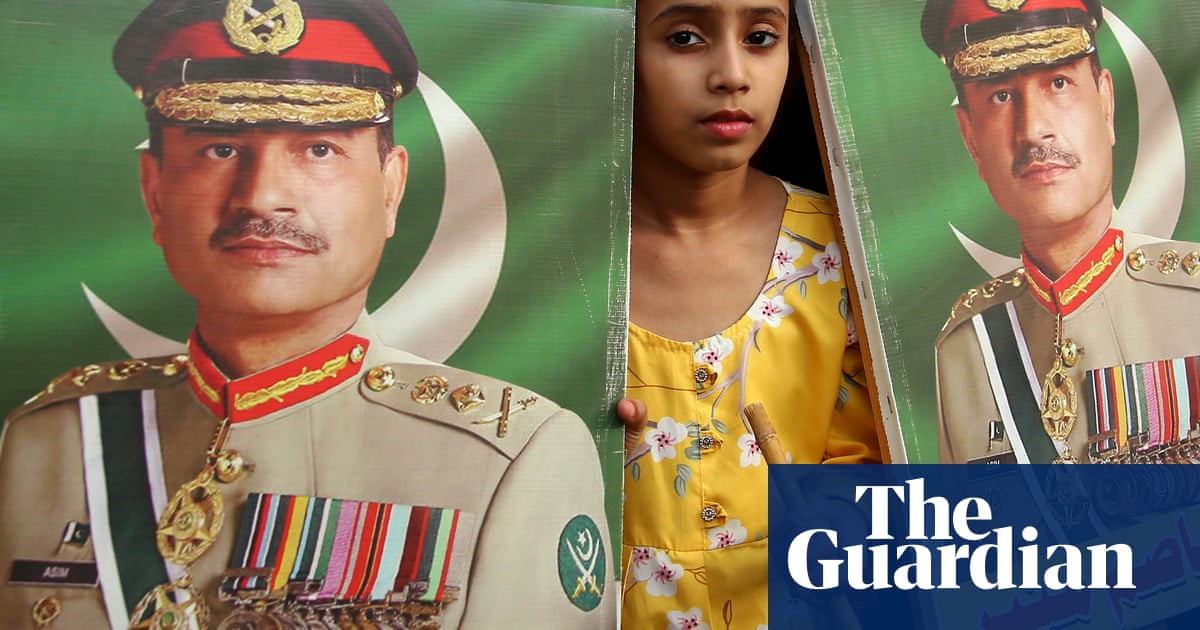After years in the diplomatic deep freeze, US-Pakistan ties appear to be quickly thawing, with Donald Trump’s effusive welcome for Pakistan’s army chief, Gen Asim Munir, signalling a possible major reset.
Once snubbed so badly that Imran Khan, a former prime minister, rode the New York subway to the UN general assembly in 2019 unescorted,Pakistanis now enjoying top-level access in Washington, including a White House lunch for Munir on Wednesday and meetings with top national security officials.
Trump’s perceived friendliness with Munir, coupled with whatIndiaconsiders to be a glossing over of Pakistan’s record on terrorism, has raised Indian eyebrows, especially amid sensitive trade negotiations with the US.
In a phone call with Trump on Tuesday, the Indian prime minister, Narendra Modi, strongly rejected the US president’s repeated claims that he personally brokered peace in the four-day conflict between India and Pakistan in May.
The next day, while calling Modi a “fantastic man”, Trump described Munir as “extremely influential” in halting the brief but intense war. “I love Pakistan,” Trump said, before repeating: “I stopped the war between Pakistan and India.”
In the phone call, Modi made it “absolutely clear”, India’s foreign secretary, Vikram Misri, said, that hostilities ceased only after Pakistan requested a ceasefire, and that no third-party mediation had taken place. “India has not accepted mediation in the past and never will,” Misri added.
Adding to the confusion, a White House press officer said Munir had been invited after suggesting Trump be nominated for the Nobel peace prize for ending the conflict, which followed a terror attack that killed 26 mainly Hindu holidaymakers in Indian-administered Kashmir.
Munir’s red-carpet treatment in Washington and high praise from US Central Command hint at a strategic recalibration.
Gen Michael E Kurilla, the head of Central Command, recently called Pakistan a “phenomenal” counter-terrorism partner, citing Islamabad’s role in helping capture the alleged ISKP planner behind the 2021 Abbey Gate bombing at Kabul airport, an attack that killed 13 US troops and more than 170 Afghan civilians.
Munir’s five-day US tour includes meetings at the Pentagon, State Department, and Central Command headquarters in Florida. Such access is extraordinary for a Pakistani general. “Senior US officials often meet with Pakistani generals,” Michael Kugelman, a Washington-based South Asia analyst, noted. “But they don’t get entertained at the White House. Ayub Khan and Zia ul-Haq were exceptions but they came as heads of state.”
The shift in tone is stark. India has long positioned itself as the more reliable partner for the US as the world’s largest democracy, a bulwark against China, and a hub for expanding trade and intelligence-sharing. Pakistan, by contrast, has been dogged by accusations of sheltering terrorists and undermining civilian rule.
Just a few years ago, Trump himself accused Pakistan of offering “nothing but lies and deceit”. Joe Biden later called it “one of the most dangerous nations in the world”.
Indian officials continue to point to Pakistan’s links to major terror attacks, including on its parliament in 2001 and in Mumbai in 2008 . Against that backdrop, Washington’s embrace of Munir strikes a jarring note in Delhi, where critics say the US is engaging with the same military establishment long accused of enabling cross-border militancy.
Analysts say the pivot may be driven by more than just strategic cooperation. For Trump, it could be personal. “He has a thing for strongmen,” said one US analyst. “He sees something in Munir – the mystique, the military credentials, the aura of control. Trump responds to dominance, and Munir projects it.”
That may help to explain why Munir was granted access usually reserved for heads of state. “He probably relished the opportunity to size Munir up,” said Kugelman. “Trump knows that in Pakistan, it’s the army chief who really runs the show.”
But Munir’s visit is taking place as the Middle East is in turmoil, with Israel striking Iranian targets and Iran firing missiles in retaliation. The US may be hoping that Pakistan, one of the few countries with diplomatic ties to Tehran, could play a role in de-escalation.
There’s also a more delicate calculation, with Israel pushing the US to join its military campaign against Iran, which shares a 900-km border with Pakistan. That geography puts Islamabad in a pivotal position. Some analysts believe the US may be probing whether Munir would allow surveillance flights or logistical cooperation.
But Pakistan’s room for manoeuvre is limited, with public opinion strongly pro-Iran. “Even privately, Pakistan’s military would likely balk at the risks,” said Kugelman. “They can’t afford to be dragged into this. The backlash would be enormous.”
For Indian officials, Munir’s reception has revived old memories of the U.S. tendency to tilt toward Pakistan at critical junctures, such as in the cold war moments or post-9/11. But this time, analysts also say, the reset may also involve commercial opportunity.
Pakistan is actively courting US investment in two of the most volatile and potentially lucrative global commerce sectors: cryptocurrency and critical minerals. “The Trump-Munir meeting shouldn’t be seen only through the lens of the Israel-Iran war,” Kugelman said. “There’s been US-Pakistan engagement on crypto, minerals, and counter-terrorism, and Trump takes a deep personal interest in all of these.”
He added: “This is classic Trump: ‘What can you do for me? What can I get out of this?’”
